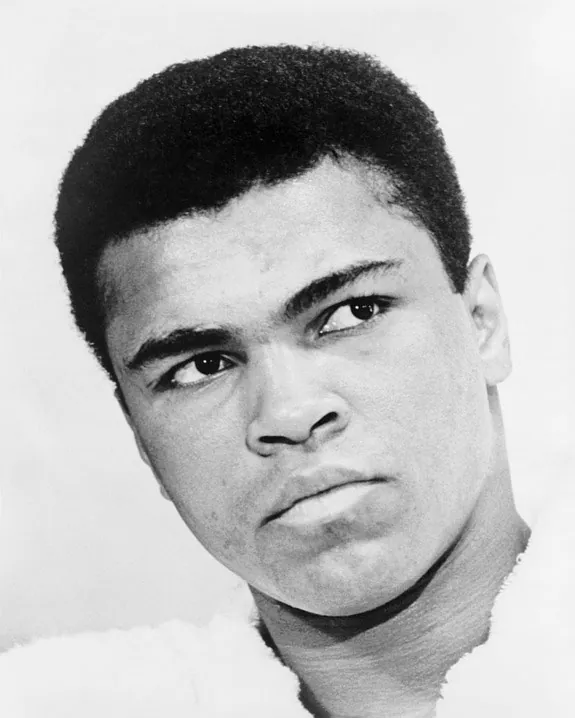5 Lessons Sales Professionals Can Learn From Muhammad Ali

Recently we experienced the passing of a legend, Mohammad Ali. He called himself “The Greatest,” and everyone agreed. Ali was widely revered as one of the best athletes of all time. He inspired millions—not just in the ring, but through his confidence, his bravery and his ability to start over whenever life tried to knock him cold.
We’d all do well to get in touch with our inner Ali, especially in sales, where things can get rough and we sometimes find ourselves on the ropes.
On Confidence
When in front of the press, his fans or his opponents, Ali never shied away from openly believing in himself. He knew that to be the best, you have to believe you are. As he once said, “I am the greatest—I said that even before I knew I was.” In the sales biz, you can’t succeed without confidence. Though you’ll have to drop it down a few notches from Ali’s—he got away with claiming to be the best, but most folks can’t and shouldn’t even try to pull that off.
In sales, confidence builds in several ways. For example, through the act of listening to clients and honing in on exactly what they need to succeed. Or by offering valuable insights and solutions. You do these things from a point of confidence, or at least you should. With confidence, the options and alternatives you offer should challenge clients’ thinking and undo any preconceived notions they bring to the table. Confidence is perhaps most important during sales presentations, when you must be on—and you need to answer questions you didn’t necessarily know you’d get. You also need confidence when you’re on the phone with clients, or when you’re in your weekly one-on-one with your manager.
On Being Prepared
In all walks of life, preparedness is hugely important. In a 1978 interview with Newsweek, Ali said, “I hated every minute of training, but I said, ‘Don’t quit. Suffer now and live the rest of your life as a champion.’” What does preparedness mean in sales? First off, you should never be suffering, but you will have to train. That includes things like role playing with coaches and peers, and devoting mental energy to your sales presentations, so that they don’t come off as just a canned pitch.
All of that training pays off in the “ring” with your customer. And believe us when we tell you that your customers can tell the difference between someone who is totally winging it and someone who has done their prep and research like a winner—in other words, a rep who has taken the time to comprehend the challenges and understand how their solution will face them down. Remember too that when you have confidence, you instill it in the customer.
On Risk Taking
“He who is not courageous enough to take risks,” said Ali, “will accomplish nothing in life.” When you’re in sales, there are certain risks you can’t afford not to take. Think about a great prospective customer you’re courting, one that presents a huge opportunity for you. Can you afford not to pony up the travel cost to have facetime with them? Can you afford to ignore smaller leads because you’ve put all your energy into landing that one large deal you’ve set your mind to? Can you afford to avoid a difficult conversation with a client when you realize they are about to embark on a terrible business decision? The answer to all of the above is “No, Champ, you really can’t.”
On Overcoming Obstacles
“It isn’t the mountains ahead to climb that wear you out; it’s the pebble in your shoe,” said Ali. While working toward their goals, leading sales reps rid their lives of obstacles that make it difficult to achieve those goals. Maybe you’ve got some bad habits you’d like to lose. Perhaps you need to put some distance between you and the negative folks in the office because they’re poisoning your work atmosphere. Identify the proverbial pebble in your shoes and learn how to get it out so that you can climb to the top with greater ease.
On Learning
In a Playboy Magazine interview from ’75, Ali, always the greatest with words, said, “The man who views the world at 50 the same as he did at 20 has wasted 30 years of his life.” How this translates to sales is to be open to change, to seeing the world differently, to learning and growing from your experiences. In the constantly changing world of sales, you too need to be open to change and to learning new things. It’s the sales professionals and organizations that embrace change, exposing themselves to new information, different perspectives and fresh ideas that end up with their gloves raised in victory. So go float like a butterfly and sting like a butterfly too—this is sales; you’re not literally trying to knock anyone out, just knock their sox off.

- Account Planning (11)
- Awards (55)
- Client Testimonial (37)
- Personal Branding (19)
- Podcast (12)
- Research (70)
- Sales Career Development (85)
- Sales Coaching (157)
- Sales Consulting (133)
- Sales Culture (164)
- Sales Enablement (350)
- Sales Leadership (111)
- Sales Management (243)
- Sales Negotiation (16)
- Sales Prospecting (120)
- Sales Role-Playing (19)
- Sales Training (236)
- Selling Strategies (256)
- Soft Skills (68)
- Talent Management (92)
- Trusted Advisor (28)
- Virtual Selling (42)
- Webinar (12)




























